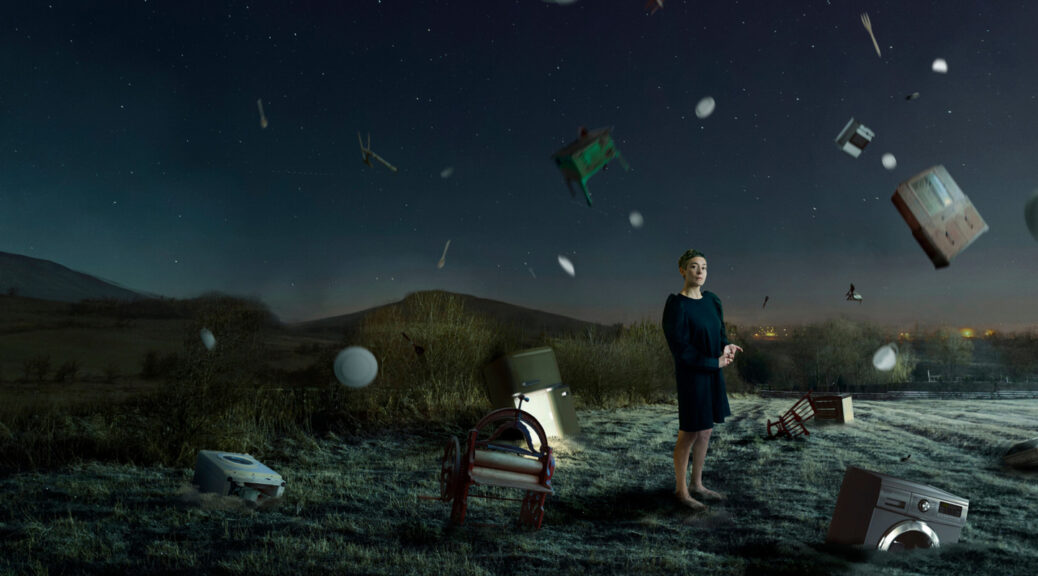
Time is one of humanity’s most enduring enigmas; it can be counted in eras and in seconds, it can seem endless or scarce, and however long you live, there’s never enough of it. These are some of the key tensions within Violet, a contemporary opera which is sung through in English and co-produced by Music Theatre Wales and Britten Pears. Composed by Tom Coult and written by Alice Birch, the story takes place in a town where nothing changes until, one day, everything does: one hour disappears on day one, two on day two, and on and on – but while the world seems to be ending around her, Violet’s is just beginning.
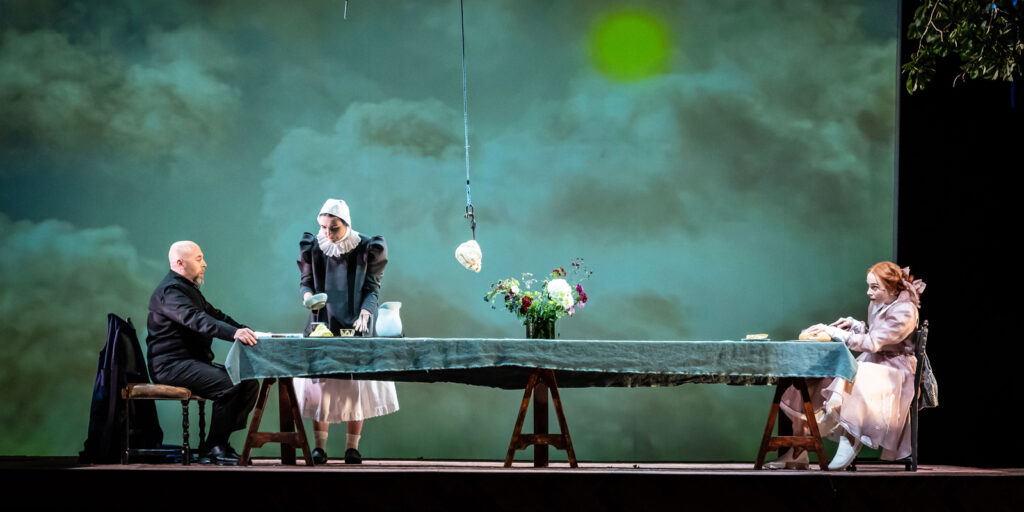
Directed by Jude Christian, Violet is an exhibition of artistry, from Rosie Elnile’s gorgeous set, which looks like a minimalist Renaissance painting, to Cécile Trémolières’ lush costumes, which play with both austerity and freedom through fabric. The temporal distortion at the story’s heart bleeds through to everything on the stage, which anachronistically mixes period clothing with modern props, framed by an animated backdrop of dandelion seeds swirling like grains of sand in an hourglass.
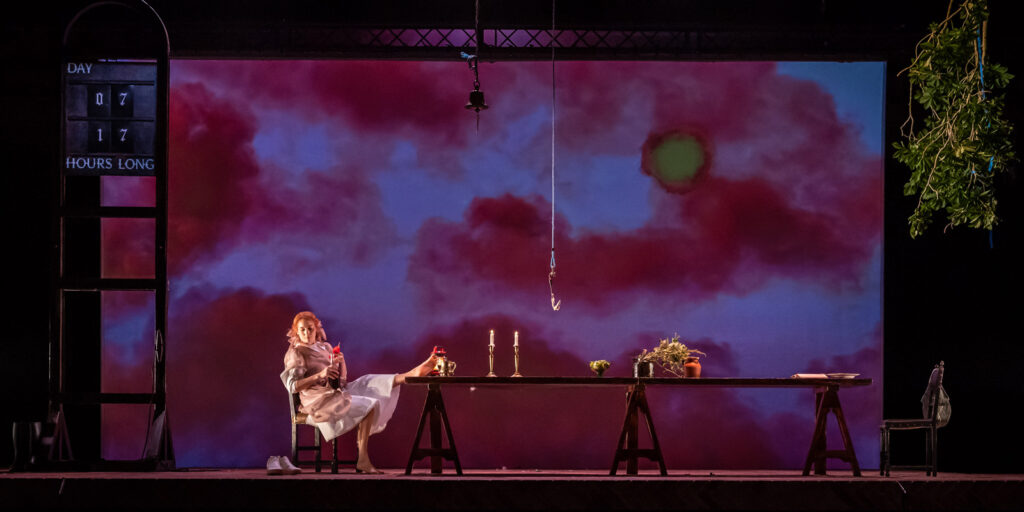
The operatic quartet at its heart are equally impressive. Anna Dennis viscerally captures Violet’s growing sense of self and power (her name even seems to anticipate ‘violent ends’) while Richard Burkhard and Frances Gregory (as Violet’s husband and maid, respectively) convey their characters’ descent into despair. At the start of each scene, Andrew MacKenzie-Wicks’ keeper goes to the clock tower, changing it to show the days left and the hours lost. The tower is built to mimic a guillotine; along with a branch and a bell, it is one of three ‘swords’ of Damocles which hang ominously above the characters, as if to fall at any moment.
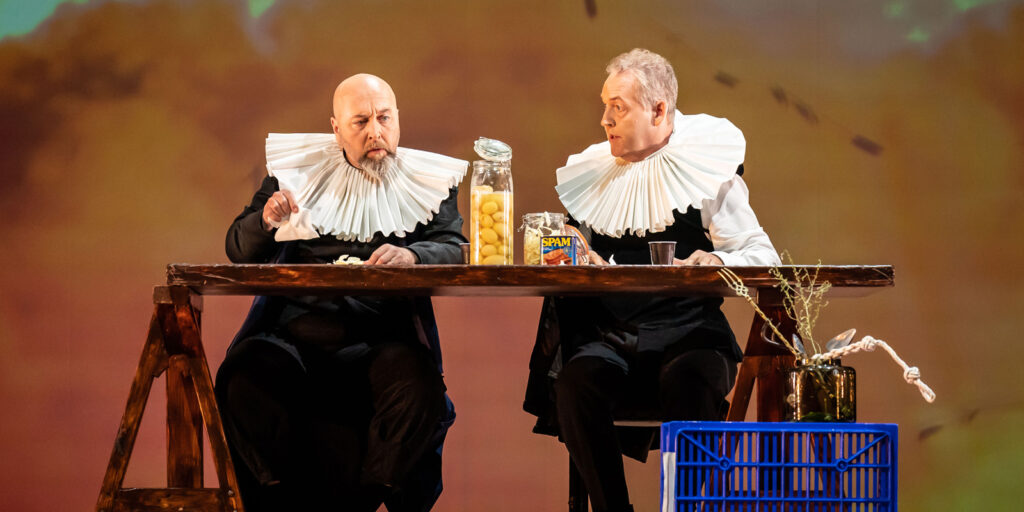
Thematically and visually, then, it’s close to perfection – but, for some reason, I didn’t quite connect with it. Perhaps it’s because I’ve never seen a ‘contemporary opera’ before, despite how exceptional the singers are, how authentic Coult’s score is or how vivid it sounds in the hands of the London Sinfonietta, conducted by Andrew Gourlay. If you’re immersed in the worlds of opera or experimental theatre, you couldn’t ask for better – but, like the twenty-first century laptop on the sixteenth-century table, I felt emotionally ‘displaced’ by the show, unable to ever fully tune into its frequency.
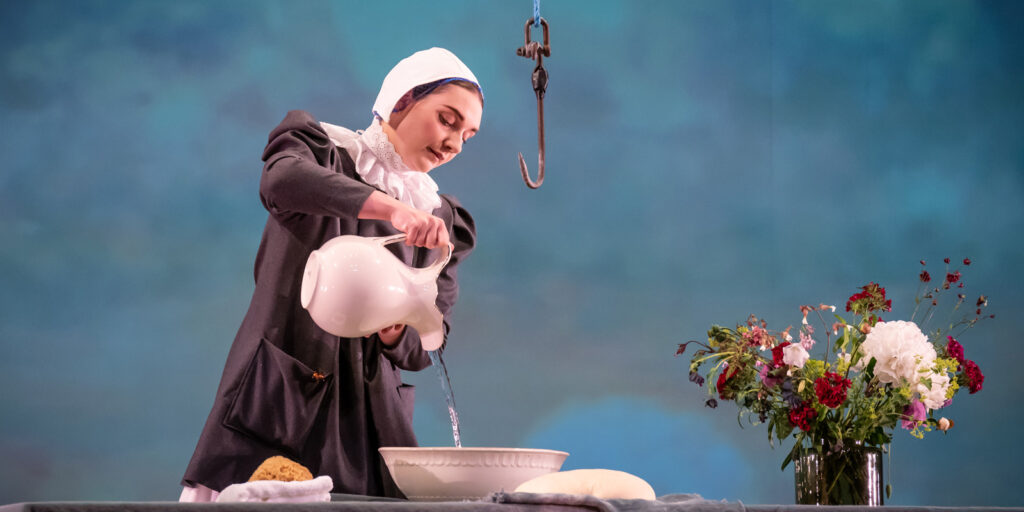
My reservations are encapsulated in its ending: an unsettling animated sequence which is sure to divide audiences. It’s certainly divided me: on the one hand, I can appreciate how it underscores the themes of time doubling in on itself, of repetition and stagnancy. On the other, it shatters the strange magic of the first eighty minutes, and any sense of ‘hope’ along with it.
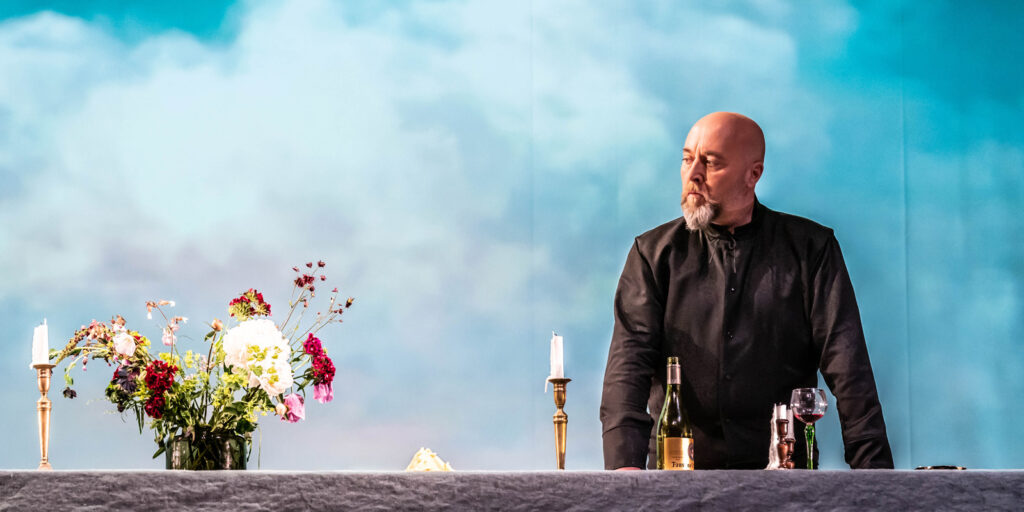
Violet premiered at the Aldeburgh Festival in Snape Maltings, Suffolk, earlier this month and it’s easy to see why it’s had such an impact on audiences. I was caught up in its artistry and intrigue, and it’s made me want to explore the world of opera, modern and otherwise, all the more. Dynamic and affecting, what Violet conveys most effectively is that the end of the world might not come in a planet-shattering catastrophe, but in a creeping sense of hopelessness and dread: not with a bang, or even a whimper, but with the ringing of a bell.
Violet is touring across the UK through July, with upcoming performances in London, Buxton and Mold
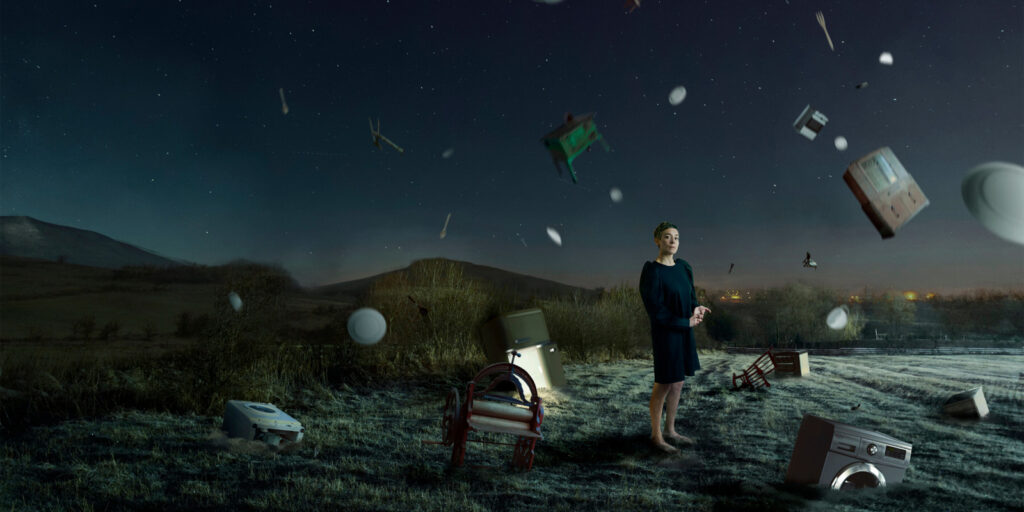
Review by
Barbara Hughes-Moore
Get the Chance supports volunteer critics like Barbara to access a world of cultural provision. We receive no ongoing, external funding. If you can support our work please donate here thanks.

